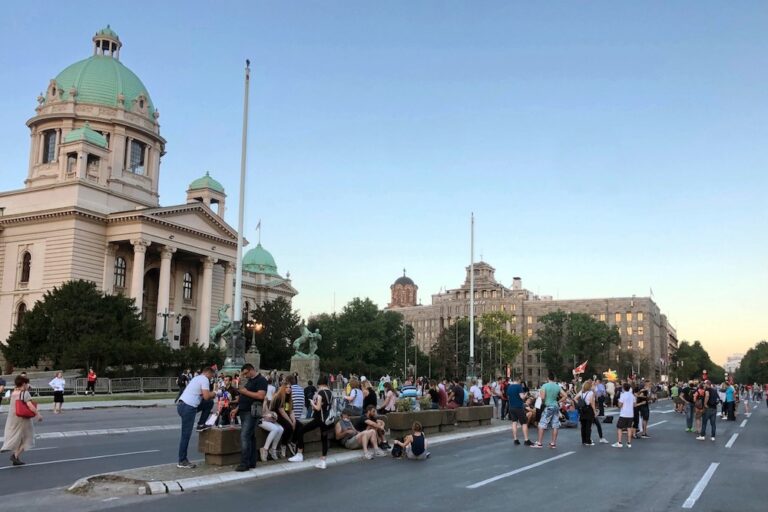(HRW/IFEX) – Human Rights Watch has learned that on 30 March 1999, Serbian officials visited the offices of Radio B92 in Belgrade and took all the names and addresses of its journalists. **Updates IFEX alerts of 1 April, 29 March, 25 March and 24 March 1999** Radio B92 is Serbia’s largest and most important independent […]
(HRW/IFEX) – Human Rights Watch has learned that on 30 March 1999, Serbian
officials visited the offices of Radio B92 in Belgrade and took all the
names and addresses of its journalists.
**Updates IFEX alerts of 1 April, 29 March, 25 March and 24 March 1999**
Radio B92 is Serbia’s largest and most important independent radio station.
On the night of 24 March, Serbian authorities confiscated the station’s
Belgrade transmitter and B92’s editor, Veran Matic, was held in police
custody for eight hours. The station continues to broadcast via satellite.
Its programmes remain one of few alternatives to the state-run media.
Since October 1998, when a restrictive Serbian Law on Public Information
came into force, the government has systematically shut down or fined out of
existence most of Serbia’s privately owned media. Foreign broadcasts of the
BBC, VOA, RFE/RL and Deutsche Welle have been banned.
Newspapers, radio and television stations under the control of Milosevic,
especially Radio Television Serbia (RTS), present distorted information
about the Kosovo conflict and the role of the international community. In
recent weeks the state media has waged a virulent anti-American campaign,
likening U.S. President Bill Clinton to Adolf Hitler and NATO airstrikes to
World War II-era Nazi aggression.


